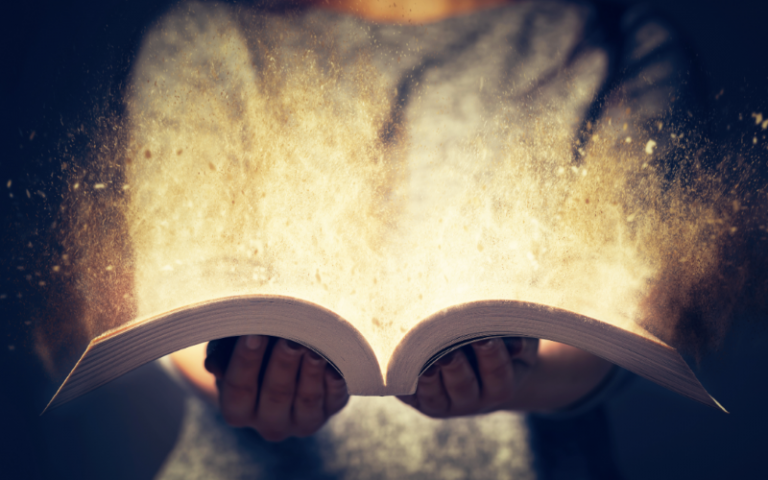Using the history of magical thinking to inspire creativity
An exhibition co-curated by Professor Sophie Page attracted 45,585 visitors to the Ashmolean Museum in Oxford, and inspired collaborations with artists, cartoonists, musicians and storytellers.

28 April 2022
As co-investigator on the Leverhulme funded project “Inner Lives: Emotions, Identity, and the Supernatural, 1300-1900” (2015-2018), Professor Sophie Page (UCL Department of History) led research in three significant areas: recovering and interpreting the visual and material culture of magic; identifying how interactions with the supernatural revealed the emotional experiences and interior lives of medieval people; and assessing the diverse ways in which cosmological ideas circulated in the late Middle Ages and stimulated the creation of new models to address questions about the nature of evil.
Leaving people spellbound
Co-curating (with professional curator Marina Wallace) the major exhibition Spellbound: Magic, Ritual and Witchcraft at the Ashmolean Museum in 2018 enabled Professor Page to expand her research beyond the Middle Ages to the modern eras, working in collaboration with the historians Malcolm Gaskill and Owen Davies.
Professor Page used contemporary ideas about magical thinking (the belief that our thoughts or wishes may influence the world around us, or that one event happens as a result of another with no plausible link of causation) to make significant connections between ideas, emotions, practices and experiences of magic in the past and present in her contributions to the accompanying exhibition catalogue.
Spellbound brought together more than 200 exhibits from the twelfth century to 2016 in an antechamber on magical thinking and three rooms focused on the medieval cosmos, the modern home and the early modern community.
Professor Page’s new research findings on several objects enhanced their interpretation: notable examples included a 17th-century ceremonial sword at the Ashmolean (now recognised as a betrothal gift), magic square talismans at the Pitt Rivers, a seal matrix at the Museum of the History of Science Oxford and an extremely rare magic mirror loaned by the Mathematisch-Physikalischer Salon, Dresden.
Spellbound attracted features, interviews and blog posts in UK and European media outlets, recognising the significance of magical thinking today and in the past. In The Times Literary Supplement, Jane Jakeman declared that it was “an exhibition more intelligent and thought-provoking than any big metropolitan collection has managed”.
Creative collaborations
Professor Page’s collaborations with artists resulted in the co-production of new art works which enriched artistic practice: a sculpture tableau (Ackroyd & Harvey), an interactive music piece (Hayden Chisholm), a modern wall hanging (FCW), a comic book (Hannah Sackett) and a story-telling workshop (Olivia Armstrong).
Ackroyd and Harvey’s work From Aether to Air consists of an elevated crystalline human figure, a backdrop of angels and two small demons, which was influenced by Professor Page’s research demonstrating how medieval cosmic models emphasised human agency in response to environmental pressures.
In collaboration with the prisoner rehabilitation charity Fine Cell Work (FCW), Spellbound displayed the specially commissioned wall hanging “Magical Thinking”. This piece was hand-stitched in four British prisons by 12 individuals, based on Professor Page’s research into medieval and modern understandings of human fate constrained by powerful environmental pressures.
Research synopsis
Enriching public understanding of, and inspiring creative practice through, the history of magical thinking
Professor Sophie Page co-curated the exhibition Spellbound: Magic, Ritual and Witchcraft which drew upon her research into the history of magic and attracted 45,585 visitors to the Ashmolean Museum, Oxford (between 31.08.1 and 06.01.19).
Page’s research and Spellbound prompted collaborations with artists Ackroyd & Harvey, cartoonist Hannah Sackett, musician Hayden Chisholm and storyteller Olivia Armstrong, as well as the prisoner rehabilitation charity Fine Cell Work (FCW).
Links
- Professor Sophie Page’s academic profile
- Inner Lives: Emotions, Identity, and the Supernatural, 1300-1900 project
- UCL Department of History
- UCL Social & Historical Sciences Faculty
- UCL Faculty of Social & Historical Sciences REF 2021
Image
- Image credit: iStock/NiseriN
 Close
Close

